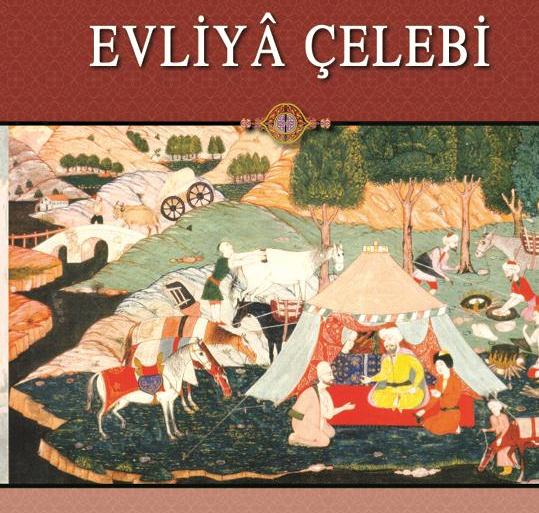English-Language Edition of Book on Evliyâ Çelebi Published
The book on Evliyâ Çelebi edited by Bilkent University Department of Turkish Literature faculty members Assoc. Prof. Nuran Tezcan and Prof. Semih Tezcan and published by the Ministry of Culture and Tourism last year has recently been published in English with the sponsorship of the Banks Association of Turkey. Prof. Robert Dankoff from the University of Chicago, who has taught courses as a guest faculty member in the Department of Turkish Literature at Bilkent, is the editor of the English edition.
The first article in the book introduces Evliyâ Çelebi as a genius. Research on the "Seyahatname," which began with its discovery in Istanbul by the renowned Austrian historian Joseph von Hammer-Purgstall at the beginning of the 19th century and continues today, demonstrates the importance of this work in the international scholarly world. One article compiles the documentary evidence about Evliyâ Çelebi aside from his work. Other articles comprise maps and itineraries of his journeys; evaluate his city monographs and his descriptions of Ottoman and Byzantine architecture; discuss the information he gives on various peoples and languages; and evaluate his significance as an author and traveler and the place of the "Seyahatname" in Turkish and world literatures. There is also an article on Evliyâ Çelebi's map of the Nile that was published in Turkey two years ago and has aroused great interest in the scholarly world.
This publication lays claim to being the best book in English published in Turkey so far. On the back cover is found the following description: "Evliyâ Çelebi arouses great interest because of his life devoted to travel and his gift as a writer. Born and bred in Istanbul, he was a passionate traveler who made journeys from Central Europe to Iran, from Ukraine to Sudan; from the famous cities known as 'GoldenApple' as far as ports in Somalia whose very names no one had heard. With endless curiosity, he observed societies, events, people - not only people, but animals, plants, cities, buildings, everything; and not only observed, but turned his observations into words, into writings, as though he were stringing pearls. He wanted to know what was going on in America. He vied with Western geographers. Past age sixty, he went off to explore the mysterious Nile and then documented his discoveries in detail, in the last volume of his magnum opus as well as in a huge map. With his evolved personality, he broke the molds of his society and, in his writings, went beyond his age. His work is a window that opens on the Ottoman world of the 17th century."
